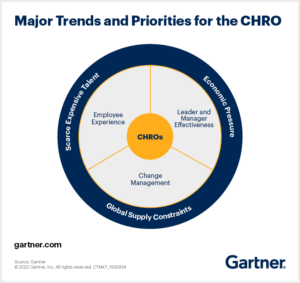Despite the fact that our research work has not been representative, there are several interesting findings for those involved in developing leaders.
Even though the use of leadership development initiatives and feedback systems have stagnated or even slightly decreased over the past five years, managers reported to have applied significantly more people management best practices in 2017 than in 2012 (16 generally recommended practices were examined in both research studies of about 250 respondents). Coaching as a development tool has become more widespread, especially among local firms and SME-s. It clearly shows that leadership development activities and feedback systems have a strong positive effect on conscious people management: they increase the likelihood of applying best practices by 30%. However, these development tools do not seem to be effective in all areas, e.g. helping leaders manage their time according to their most important goals, or nudging them to systematically support the personal development of their subordinates. It looks like managers would need more help in turning their knowledge into action in these areas, it is not enough to simply train them or set expectations.
Both studies unanimously busted a couple of widespread myths. The use of people management best practices is unrelated to age. It does not seem to matter how experienced a manager is. However much is written about the differences between the Gen Y and Gen X, in managing people they seem to behave pretty much the same way. Even if the workplace expectations of Gen Y employees appear to be different, their own people management practices do not differ from Gen X leaders in a statistically significant way.
There is also much discussion about whether women or men are more capable of working in leadership roles. Bad news for the firm believers of both sides: the two studies have shown no statistically significant difference between genders. Women have exactly the same chance to become excellent managers as men, not less and not more.
In 2012 we were very much surprised to see that people management practices carried out by superiors are not inherited by their direct reports. So if I do not get regular, good quality feedback from my boss, I can still provide that to my people. At the same time, if my manager provides me with such feedback, the likelihood that I do the same with my subordinates is not higher. Our 2017 research unfortunately confirmed our earlier observation with basically zero correlation. Even though children tend to learn from example, and it is true that top management behaviour does define culture, it looks like adults do not copy the people management practices of their bosses. Internal motivation and personal drive appears to be more decisive in this area. We do not want to assert that managers should not lead with example, but it seems to be insufficient, if we are talking about people management practices. Moreover, bad example from the superiors will not necessarily prevent a manager from becoming a pro in leading his or her team.
As pointed out above, leadership development programs and feedback systems do have a positive effect on the use of people management best practices, especially if both are applied. However, you also need to acknowledge that they are not equally efficient in all kinds of best practices, so self motivation is very critical. This is why we always recommend voluntary program participation as opposed to compulsory courses.
You have to be careful when you design feedback systems, since or data shows that they tend to make managers focus more on curing weaknesses instead of developing strengths. Performance management forms should therefore be modified to place more emphasis on strengths and dwell less on weaknesses. In addition, our research indicates that the participation in leadership training and coaching also enhances strengths focus among managers.
Act2Manage Application
An interactive, gamification-based, practice-oriented leadership development application that provides immediate help and enables follow-up to the most common dilemmas.







